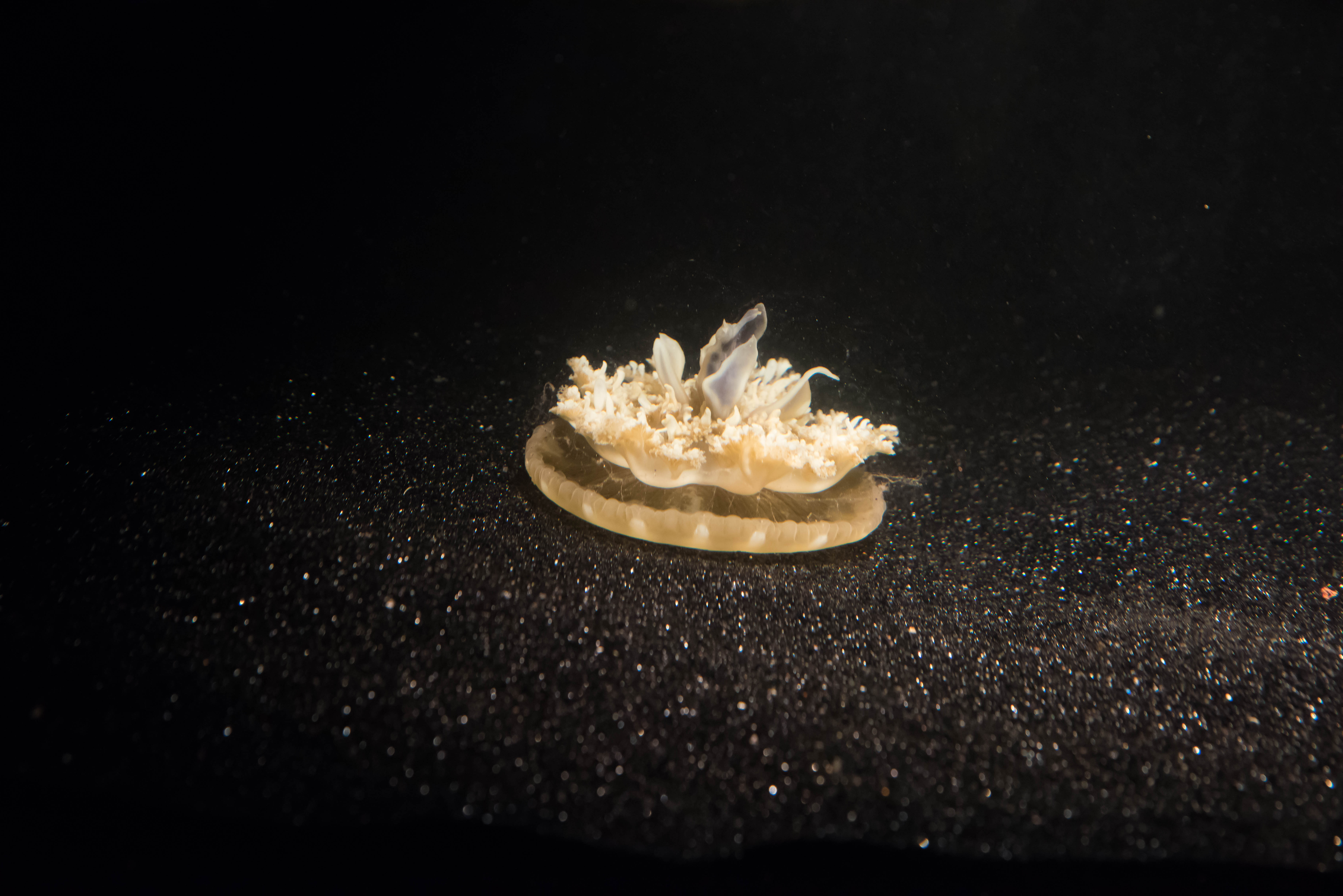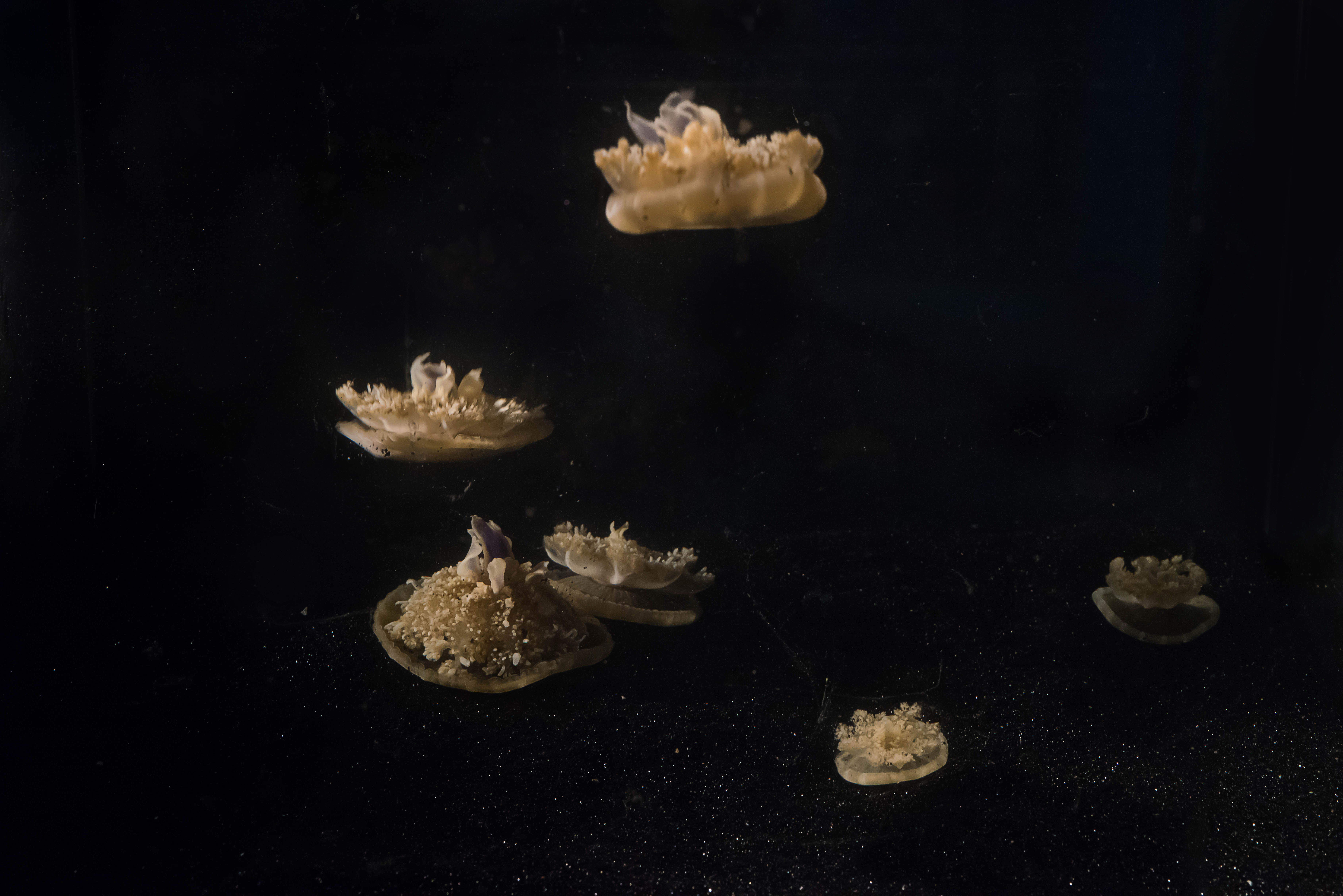Brainless Jellyfish Sleep Too
Credit to Author: Samantha Cole| Date: Thu, 21 Sep 2017 16:00:00 +0000
I like this jellyfish’s style. Cassiopea, known as the “upside-down jellyfish,” spends its time suction-cupped to the floor of warm bodies of water, kicking its frilly mouth openings up and pulsating, casually. Like all jellies, it has no brain or central nervous system. It sounds really nice. Add to this idyllic life a regular period of sleep, and you’ve got a perfect day.

Researchers at the California Institute of Technology found evidence of sleep habits in Cassiopea jellies, and it’s the first-ever example of sleep in animals without a brain. Their research was published in the September 21 issue of Current Biology.
Read More: This Adorable Little Creature Is the Deepest Living Fish Ever Seen
In studying the sedentary habits of Cassiopea, the researchers noticed that the jellies—which pulse all day, as a way to catch and eat zooplankton that drifts by—were pulsating more slowly at night. Dropping food into the water made them stir, showing that the slower pulsating wasn’t a coma or paralysis, but a sign of sleep. And if they kept the jellies from resting on the bottom of the tank throughout the night, the jellies showed signs of sluggishness the next day. Poor groggy jellies.
Although humans spend a lot of energy trying to “hack” sleep, all known vertebrates need it to survive. Why animals need sleep is largely a mystery. The most satisfying answer scientists have come up with is that it’s a kind of “defragmenting” process for the brain, where important connections are strengthened, and unimportant ones are pruned away. It’s also a chance for the brain to clear itself of waste chemicals that build up during the waking hours.
But for a jellyfish—which gets along quite fine without a brain, using a series of nerves to react when needed but moving with the current’s flow most of the time—what is it good for? This new finding raises more questions than answers.

“Even an animal as evolutionarily distant from humans as jellyfish requires a sleep-state,” Claire Bedbrook, one of the researchers on the study, told me via email. “This shows us how important sleep is in animals and begs the question, ‘what do jellyfish and humans have in common such that they both need to sleep’? This study sheds light on the ancestral form of sleep that may have evolved and specialized to eventually become human sleep.”
The fact that an animal as untouched by evolution as the jellyfish needs it, shows that sleep could serve a purpose even more complex and ancient than previously thought.
Get six of our favorite Motherboard stories every day by signing up for our newsletter.